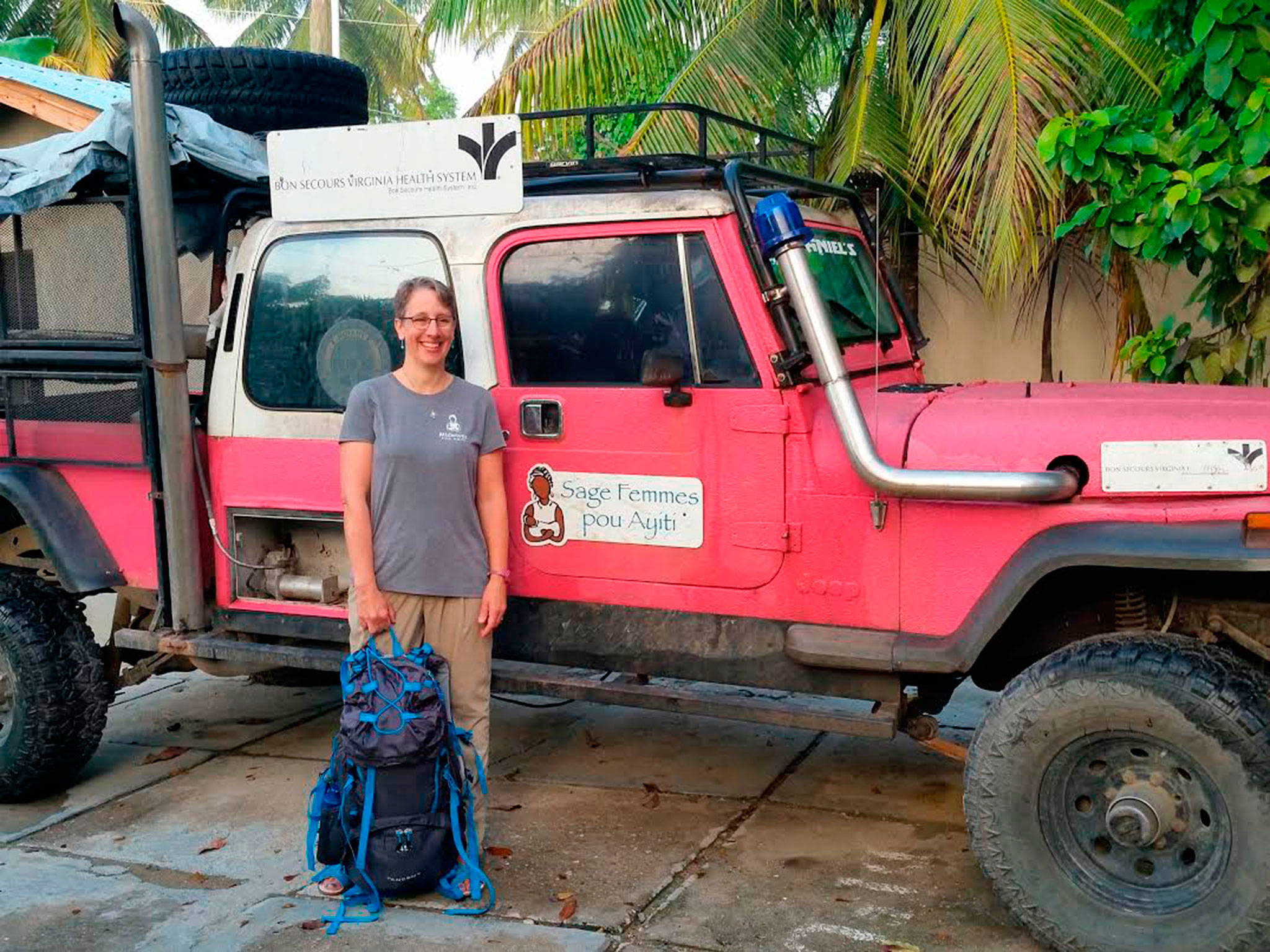Ann Marie Henninger is already planning on volunteering with Midwives for Haiti again after she just returned from Haiti several weeks ago.
The Sequim resident, wife and mother of seven children, returned to the U.S. in mid-September after volunteering her expertise in childbirth, pregnancy and lactation to Midwives for Haiti (MFH), a midwife training program that aims to increase access to skilled maternity care in the region.
Henninger stayed at the MFH headquarters in Hinche where she was able to take part in a variety of activities, from teaching the program’s clinical director and education director how to do ultrasounds to performing newborn exams to helping with some deliveries and cesarian pregnancies, just to name a few.
She said while she was there she wanted to help in anyway she could, even in the smallest of tasks, such as folding gauze and rolling cotton balls to providing encouragement and compassion to women in labor.
“I wanted to be a sponge going into Haiti, and I felt like I was,” Henninger said. “Working for MFH was an honor and a pleasure.”
Henninger was in Haiti when Hurricane Irma passed over the region, but said she knew about the hurricane before she left Sequim.
“I wasn’t not going to go,” she said.
She said the hurricane hovered there for a few days and while she was “tying things down and preparing for the roof to blow off” at one point, there was some wind and rain but the storm was more mild at her location.
Aside from the hurricane, Henninger said some of the things that were eye opening for her in Haiti was the poverty she witnessed and some of the differences in pregnancy care and procedures.
“It was eye-opening to be in Haiti and see the level of poverty that exists there and how resilient the people are as well,” Henninger said.
Henninger also said there was very little privacy for pregnant women giving birth — with several women giving birth in one delivery room — and there was no running water in the hospital. She said there was one sink in the delivery room that personnel did not use for hand washing.
“Everybody has an abundance of hand sanitizer we’re using all the time,” Henninger said.
She also said she did experience four still births while she was in Haiti and made a point to honor those lives lost.
“I think because of my own experiences with loss it was important to me to honor those babies’ lives,” Henninger said.
She noted one of the big differences in pregnancy between Haiti and the U.S. was there was a lot less happiness revolving around childbirth.
“When I do births (in the U.S.) there is always a sense of joy and euphoria and relief,” Henninger said. “I can’t say that I witnessed a lot of joy.”
Henninger said after her experience working for MFH, she believes her biggest contributions there was in teaching how to do ultrasounds, building relationships and facilitating goodwill.
She said she believes the MFH program has made considerable strides in providing prenatal and postpartum services and care to women with the program’s mobil clinic and home visits.
“Women were not getting any care in pregnancy up until the time they delivered,” Henninger said.
“It’s important to be following up with these moms and babies,” she added. “And that’s where I think I really saw the positive because I saw moms and babies with postpartum issues and we were able to help them.”
She said the mobile clinic and the home visits — which are new to the organization this year — also allows MFH to educate women and refer them to the hospital to get the healthcare they need.
Henninger said in the future she will have more experience if she returns to Haiti and plans on applying to be an MFH volunteer again in 2019.
“I want to go back to help further the work Midwives for Haiti is doing,” Henninger said.
“I want to go back and serve.”
To read more about Henninger’s experience, visit https://midwivesforhaitinursevolunteer.wordpress.com/


